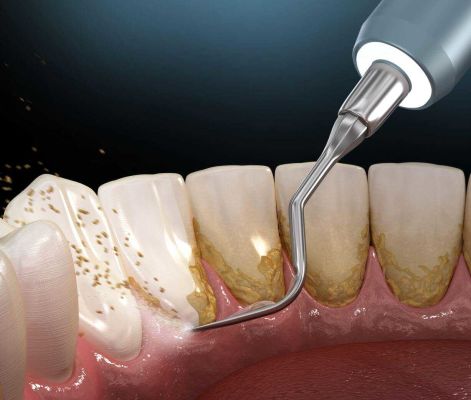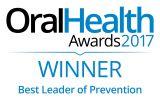
How To Remove Plaque From Teeth

Do you know that fuzzy texture we sometimes get on our teeth after eating and drinking? These are the initial stages of plaque. Bad breath and gum bleeding are also tell-tale signs.
Plaque is a natural by-product of the bacteria in our mouths. Mixing with the sugars and starches in our food and drink, the bacteria release acids that serve to break down carbohydrates and this cocktail forms the sticky, colourless substance we know as plaque.
The truth is that everyone will get some degree of plaque but sadly not everyone takes the right preventative steps to stop it from getting worse.
Left untreated, plaque will harden and become tartar, this is when more serious complications can occur.
Plaque and tartar can also develop under the gum line on the roots of the teeth and may over time even begin to break down the structure of the bone.
Untreated plaque and tartar can lead to a range of more serious options, including:
Tooth decay
Cavities
Tooth infection (abscess)
Periodontitis (severe gum infection)
Gingivitis
Periodontal (gum) disease
Thankfully, plaque buildup is highly preventable by following a dedicated tooth cleaning regime of flossing, brushing and having regular dental check-ups.
How To Prevent Plaque Build-Up
It is well known that brushing and flossing are both important steps to maintaining good oral health.
Brushing
Brush twice daily for at least two minutes with a brush that should be replaced when worn (normally around every 3 or 4 months), and always use fluoride toothpaste.
Flossing
Ideally floss at least once a day with dental floss or an interdental brush, which will remove food stuck between the ridges and gaps that brushing may miss.
Some advice suggests brushing after every meal but caution is advised! Brushing immediately after eating and drinking can actually cause damage to tooth enamel which in turn weakens the inner structure of teeth and their overall strength.
Moderate your sugar intake
Moderating sugar intake is not just good oral health but a good health decision overall. Cutting back on sugar is a fantastic step when combined with a well-balanced diet of fruit and vegetables for maintaining a fit and active mind and body.
Other Factors
Limit or remove smoke and alcohol, both smoking and drinking can be especially harmful to teeth and gums, smoking alone can permanently damage your teeth, while alcohol should be consumed in moderation to prevent condensed periods of acid build-up.
Detecting signs of tartar
There are tell-tale signs that your plaque may be turning into something more sinister. Among these are:
Chronic bad breath
Loose teeth
Redness around or inside your mouth
Toothache
Mouth pain
Sensitivity
Swelling
Swollen gums
Bleeding gums or mouth
Pain or difficulty with chewing
If you can trace back the cause of any of these to teeth or gums, it may be time to involve your dental professional.
The Role of Your Dentist
Your dentist is a pivotal part of your oral health upkeep so when you visit it's important to ask questions and to keep up on the given advice.
Important questions to ask your dentist include:
How I often should I get dental cleaning?
How can I reduce risks?
What dietary adjustments can I make?
What type of toothbrush is ideal?
What are the best dentally-approved products, such as mouthwash, and toothpaste?
How To Brush To Remove Plaque
By following these simple steps, your tooth brushing will cover the right areas, both seen and unseen, and aid strong and healthy teeth and gums.
Use a ‘miniscrub’ action, with short and gentle strokes trying to keep to the same width as the teeth.
Ensure to cover all outside surfaces, then inside and don’t forget to also brush the tops and gums.
For the inside of the teeth, tilt the toothbrush so that you can cover the tooth right down to the gum line using up and down strokes.
Summary
Good oral hygiene is essential in today’s acidic food and beverage environments and regular visits to your dentist are strongly advised.
Here at Life Dental and Wellbeing in Exeter, we pride ourselves on an extremely high level of expertise and knowledge, and we do our level best to bring this to our ethics and practice methods every day.
Please contact us with any enquiries you may have, or consult our website to see the types of treatments we can help you with.




